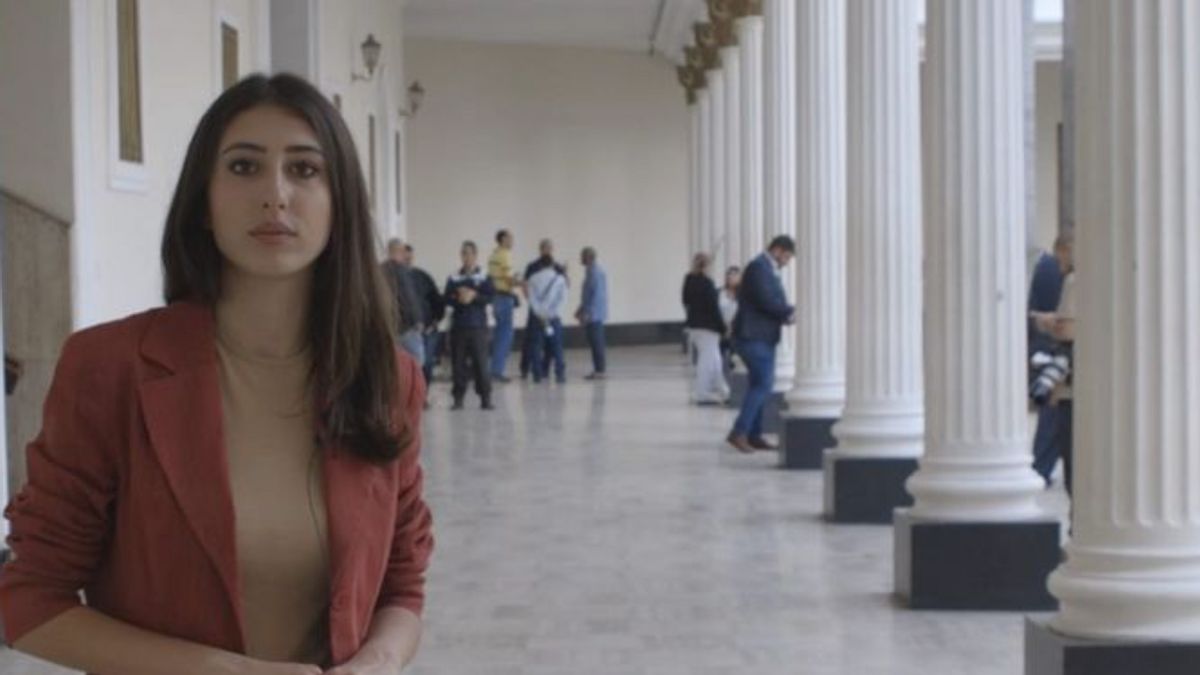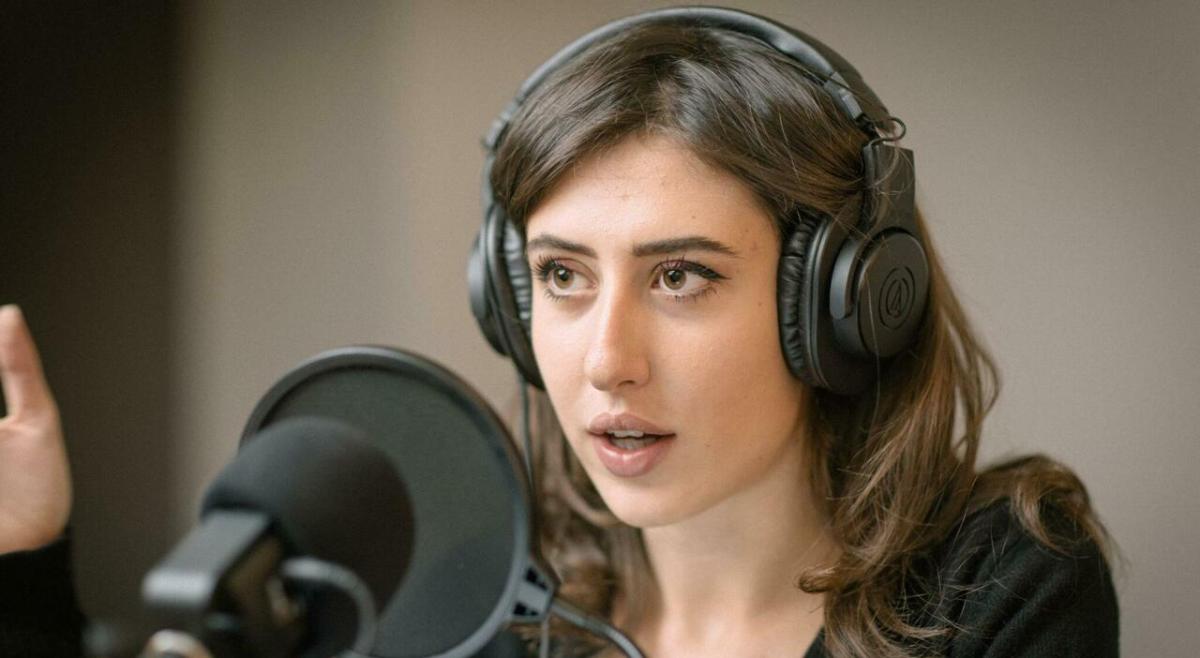Iran frees Italian journalist Cecilia Sala, who was held for 3 weeks—this news sparked international concern and diplomatic efforts. Her detention, shrouded in uncertainty, highlighted the precarious situation faced by journalists working in Iran. We’ll explore the circumstances surrounding her arrest, the international response, and the implications for press freedom in the region. This case offers a glimpse into the complex political landscape and the challenges faced by those who dare to report from within.
The timeline of events, from her initial arrest to her eventual release, will be detailed, along with the official statements released by Iranian authorities and the international community’s reactions. We’ll analyze potential reasons for her detention, considering her journalistic work and comparing her case to similar instances. The diplomatic efforts undertaken by Italy and other nations to secure her release will also be examined, including the impact on Iran’s international relations and the long-term implications for press freedom.
Cecilia Sala’s Release from Iranian Detention

The release of Italian journalist Cecilia Sala after three weeks of detention in Iran marked a significant event, sparking international attention and raising concerns about press freedom in the country. Her case highlights the complex interplay between journalism, political sensitivities, and international diplomacy in a region known for its restrictions on media.
Cecilia Sala’s Detention: Circumstances and Timeline
The circumstances surrounding Cecilia Sala’s detention remain somewhat unclear, with conflicting accounts from Iranian authorities and international observers. While the exact reasons for her arrest haven’t been fully disclosed, her journalistic activities in Iran likely played a role. Reports suggest she was detained while working on a story related to the ongoing social and political climate.
A precise timeline is difficult to construct due to limited official information. However, reports indicate her detention lasted approximately three weeks, culminating in her release. Iranian authorities initially offered limited information regarding the charges against her, leading to speculation and international concern.
Official statements from Iranian authorities were often vague and lacked specifics, frequently citing national security concerns. This lack of transparency fueled international criticism and calls for greater accountability.
| Date | Source | Statement | International Response |
|---|---|---|---|
| [Insert Date of Arrest] | Iranian Authorities | [Insert vague statement from Iranian authorities] | International concern expressed, calls for transparency. |
| [Insert Date of Release] | Iranian Authorities | [Insert statement on release, if any] | Relief expressed, calls for further investigation into detention circumstances. |
Journalistic Work and Potential Reasons for Detention
Cecilia Sala’s journalistic work in Iran focused on [Insert details of her reporting focus]. Several factors could have contributed to her detention, including her reporting on sensitive topics, potential violation of unspecified laws, or even mistaken identity. The Iranian government often restricts reporting on issues considered detrimental to national security or stability.
- Reporting on sensitive political issues.
- Interaction with individuals critical of the government.
- Potential violation of unspecified laws related to media coverage.
- Misinterpretation of her journalistic activities.
Comparing this case to other journalist detentions in Iran reveals a pattern of restrictions on press freedom. Many journalists face similar challenges, including arbitrary arrests, lack of due process, and limited access to legal representation.
International Response and Diplomatic Efforts

The international community reacted swiftly to Cecilia Sala’s detention. Italy, in particular, played a central role in securing her release through diplomatic channels. The European Union and other nations also expressed their concerns and called for her immediate release.
So, Iran freed journalist Cecilia Sala after three weeks – good news! Thinking about all the reporting she might do now, reliable communication is key, especially if she’s covering remote areas. That’s why a solid drone mobile subscription could be a lifesaver for journalists needing connectivity in challenging locations. Hopefully, Sala will have access to reliable comms as she continues her work.
Diplomatic efforts involved high-level contacts between Italian and Iranian officials, likely including negotiations and behind-the-scenes discussions. International organizations issued statements emphasizing the importance of press freedom and condemning the arbitrary detention of journalists.
A timeline of diplomatic actions would include initial expressions of concern, subsequent diplomatic interventions, and ultimately, the successful negotiation for her release. Key players would include Italian diplomats, EU representatives, and possibly mediators from other countries.
Impact on Press Freedom in Iran

Cecilia Sala’s detention further underscores the ongoing challenges to press freedom in Iran. The case highlights the risks faced by journalists working in the country and the limitations imposed on freedom of expression. This event reinforces the perception of Iran’s restrictive media environment and its impact on international relations.
Comparing Iran’s press freedom conditions with those in other countries in the region reveals significant differences. While some neighboring countries also have restrictions, Iran’s level of control over media and suppression of dissent is often considered more severe.
So, Iran freed journalist Cecilia Sala after three weeks – good news! Thinking about all the reporting she might do now, reliable communication is key, especially if she’s covering remote areas. That’s why a solid drone mobile subscription could be a lifesaver for journalists needing connectivity in challenging locations. Hopefully, Sala will have access to reliable comms as she continues her work.
Cecilia Sala’s Post-Release Statements and Experiences, Iran frees Italian journalist Cecilia Sala, who was held for 3 weeks

Upon her release, Cecilia Sala likely shared her experiences, providing valuable insights into the conditions of her detention. Her account would offer a firsthand perspective on the physical and psychological impact of her captivity. Her emotional state upon release would likely be a complex mix of relief, exhaustion, and perhaps lingering trauma.
So, Iran just freed journalist Cecilia Sala after three weeks of detention – good news! It makes you think about freedom of movement, and how sometimes, getting a visa can feel like its own kind of ordeal. If you’re looking to immigrate to Canada, check out the ircc express entry draw for your chances. Hopefully, Sala’s release reminds us all to appreciate the freedoms we have, and to work towards a world where everyone has a fair chance to pursue them.
Details about her captivity, including treatment by authorities, access to legal counsel, and the conditions of her confinement, would be crucial in understanding the full extent of her ordeal. Her physical health, including any injuries or illnesses sustained during detention, would also be significant. Her psychological state, potentially affected by stress, isolation, and uncertainty, would be of significant concern.
Legal Aspects and Future Implications
The legal basis for Cecilia Sala’s detention under Iranian law remains unclear. Analyzing the potential legal ramifications for those responsible requires examining Iranian legal codes and procedures. This case has long-term implications for future journalistic activities in Iran, potentially discouraging reporting on sensitive issues.
| Argument For Legitimacy | Argument Against Legitimacy |
|---|---|
| [Potential legal arguments used to justify the detention] | [Potential arguments against the legitimacy of the detention, focusing on lack of due process, violation of international human rights standards, etc.] |
Final Wrap-Up: Iran Frees Italian Journalist Cecilia Sala, Who Was Held For 3 Weeks
Cecilia Sala’s release, while a welcome relief, doesn’t erase the larger issue of press freedom restrictions in Iran. Her three-week ordeal serves as a stark reminder of the risks journalists face when reporting from environments with limited press freedoms. The international community’s response, though varied, underscores the global concern over such actions and the importance of advocating for the safety and freedom of journalists worldwide.
Her story highlights the ongoing struggle for open reporting and the need for continued vigilance in protecting journalistic integrity.
FAQ Summary
What type of journalism did Cecilia Sala practice?
The specific nature of her journalistic work in Iran hasn’t been fully disclosed, but it likely involved reporting on sensitive political or social issues.
What were the charges against her (if any)?
The exact charges, if any were formally filed, remain unclear. The Iranian government’s statements haven’t detailed specific accusations.
What support did she receive after her release?
Details on post-release support are limited, but it’s likely she received assistance from the Italian government and possibly journalistic organizations.
What is the long-term impact of this event on Italy-Iran relations?
The long-term impact is uncertain, but this incident could strain relations further, depending on future actions and statements from both governments.
